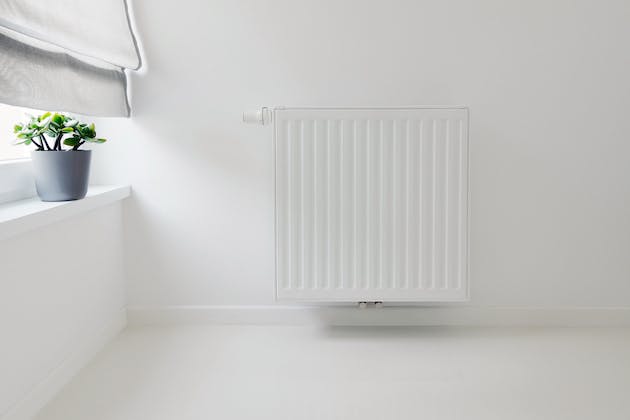You might know that bleeding radiators is essential to maintaining the health and efficiency of your central heating system, but why do you need to do it? Learn why in this blog post!
Why do you need to bleed radiators?
Your heating system is an essential component of your house, providing warmth and comfort all year. It is nearly always in use, supplying hot water to your house on-demand and producing heat through the radiator network installed throughout. It's pretty unusual for air to make its way into a system over time, gradually lowering heating effectiveness and producing some undesirable rattling noises as it passes through. By not bleeding your radiators, you may lose heating effectiveness in areas where the air is trapped, requiring you to run the heating for longer periods of time to warm your house to your preference. To guarantee the optimal performance, we recommend monitoring and bleeding your radiators at least every 6 months, and more frequently when winter approaches.

Energy Efficient
Your heating system works more efficiently when your radiators are clear of air pockets, which lowers energy costs and carbon emissions.
Better Heat Distribution
By ensuring that hot water circulates efficiently throughout the system, bleeding your radiators helps to ensure that every room in your house is sufficiently heated and helps to eliminate cold spots.
Preventing Corrosion
The presence of air in your system can cause corrosion, which will shorten the life of your boiler and radiators. Your heating components' integrity is preserved with regular bleeding.
Improve the lifespan of your radiators
Bleeding and other routine maintenance help prevent your radiators from corroding and getting damaged by air and trapped water. Bleeding your radiators as part of normal maintenance can save you money on future expensive repairs and replacements. Consequently, this lessens the possibility of malfunctions, particularly in the winter, guaranteeing the proper operation of your heating system.
Reduced Noise Pollution
Annoying noises can be produced by trapped air in radiators. Bleeding your radiators makes your home quieter and more serene while also increasing heating efficiency. If you notice that your radiators are noisy, it’s likely that they need to be bled. Our gas engineers in Mansfield, Derby, and Nottingham can help!
How does air enter your radiators?
All radiators require bleeding to eliminate air bubbles that occur on a regular basis over the life of the system. There are various ways to incorporate air into a central heating system. It might happen when additional water is introduced into the system from the expansion tank or when normal maintenance is performed. It might also be 'made' by the rotation of the central heating system pump. When radiators fail to function correctly or do not provide as much heat as they should, certain areas of the house will be cooler than others. When the house still contains frigid rooms, individuals prefer to crank the thermostat up higher than usual, increasing their central heating expense significantly.
When should you bleed your radiators?
If you hear rattling or other strange noises coming from your heating pipes, we recommend bleeding them. Begin by turning on your heating system and letting it warm up your radiators. Listen for any clanking or rumbling sounds while they're warming up; these might be pockets of air flowing through your heating system. They will ultimately settle when the system heats up, so go through each radiator in turn to gain a rapid grasp. Once suitably heated, feel the surface of the radiator for any variations in temperature, especially around the top of the radiator where the air is likely to become trapped. If it feels cooler than the rest of the body, you know there's an air pocket there. Please use caution here since the radiators will be hot, so wear gloves.
How long does it take to bleed a radiator?
After turning off your heating, you should wait one hour to allow the pipes and radiators to cool. The bleeding procedure takes around five minutes for each radiator.

